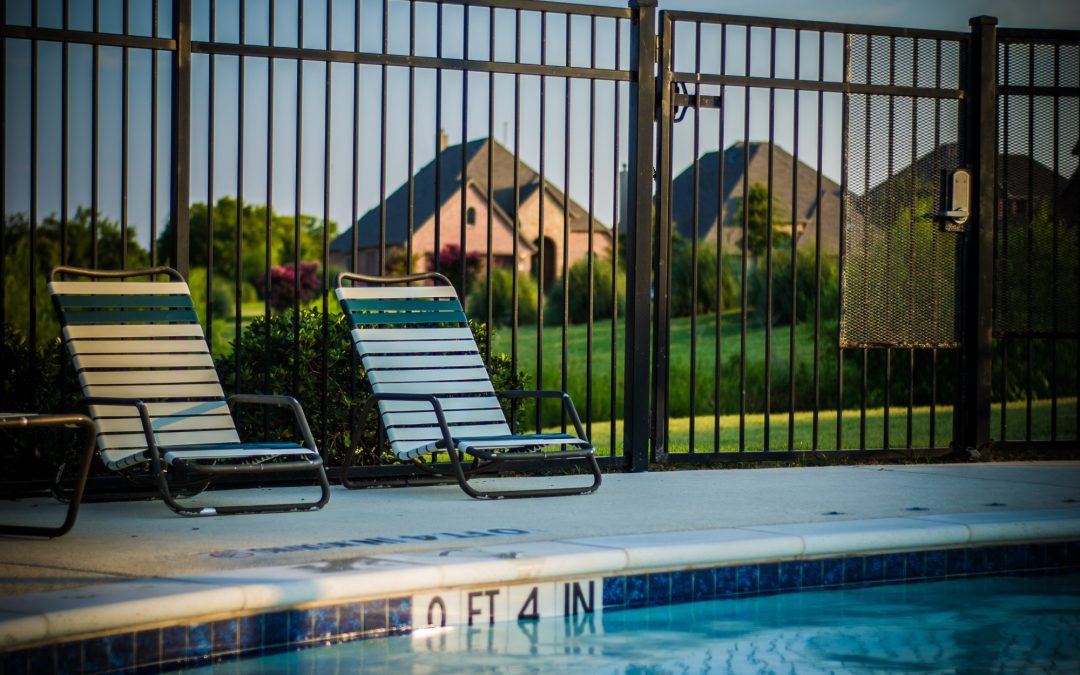Did you know that your pool can cost you quite a bit of money if it isn’t safe? In fact, one of the most common personal injury claims filed in the US is pool-related slip and fall accidents.
Pools are essentially small ecosystems that need quite a bit of maintenance. That’s not just for the water itself, but for the surrounding areas, as well.
If you have a pool in your yard, it’s important to follow pool safety tips to ensure that this space isn’t dangerous in any way.
Read on for 10 important pool safety tips that you should never neglect.
1. Establish Pool Rules
The first thing to do if you’ve moved into a house with a pool is to establish pool rules. It is important that everyone in your household, as well as any guests you invite over, understand and abide by the rules.
A few key rules to include are no running near the pool, no diving, and solo swimming. Any time your little ones are heading out for some pool time, have them repeat the rules to you and remind them that breaking the rules is dangerous.
2. Install a Fence
One of the most important things you can do is install a tall fence around your pool. You may want to invest in a locking gate, as well, especially if your kids are older or there are a lot of kids in your neighborhood.
If your back door leads straight to the pool area rather than somewhere outside of the fence, you may want to install an alarm system on that door. That way, you know if anyone is heading out to the pool area unsupervised and can stop them before an injury occurs. This is a very important pool safety tip for toddlers.
3. Limit Pool Toys Like Inflatables
Inflatables can be lots of fun and may appear to promote safety by giving swimmers a place to rest above the surface. However, they can pose a hazard if they’re too numerous. Swimmers can get trapped underneath inflatables, especially if another swimmer is on top of it and doesn’t realize what’s happening below.
Make sure that you only allow one or two inflatables in the pool at a time. If you can’t see the bottom of the pool from just about every angle, there are too many inflatables in the water.
4. Use a Pool Cover
When the pool isn’t in use, it’s best to cover it. Chances are good that you already have a pool cover that you break out in the offseason.
It may seem like a lot of work to secure your pool cover every night after use, but it could prevent someone from entering the water without your knowledge.
5. Maintain Chemical Levels and Storage
A lot of chemicals are dumped into the majority of swimming pools to keep them sanitary and balanced. However, an imbalance of any of these chemicals can cause issues like skin irritation and respiratory problems. Make sure that you regularly test your pool water and adjust as necessary.
In addition, store your pool chemical containers in a safe, secure location like a locked shed.
6. Get VGB Compliant
Pool drains create an extremely powerful suction that can pull down even the strongest swimmers, causing physical injuries and potential drowning. In 2008, the Virginia Graeme Baker Pool & Spa Safety Act (or VGB Act) was passed. This act requires all public pools to install anti-entrapment drain covers to prevent this suction from harming more swimmers.
The VGB Act does not dictate private swimming pools, so legally you are not obligated to install anti-entrapment drain covers. However, if you want to ensure home pool safety, you should get VGB compliant this summer.
7. Avoid Slippery Building Materials
Are you considering redoing your pool deck or patio? Make sure you think about what materials you’re going to use to build those structures.
It may seem tempting to use materials that are treated with waterproofing solutions. However, make sure that you understand what effect any finish will have before using it. Some waterproof finishes take safe and porous surfaces and turn them into slippery surfaces when wet.
8. Take Your Kids to Swimming Lessons
If you have a swimming pool and you have children, it’s important that your children take proper swimming lessons. There are plenty of community classes available for ages three and up to choose from. That way, if your child does fall into the water, they’ll know what to do to stay afloat and get back out.
9. Stay Vigilant
Whether you’re looking for day to day pool safety tips or pool party safety tips, this one is a no-brainer. Don’t let kids near the pool if you’re not able to keep watch. It’s best to leave distractions like smartphones and magazines inside so that you are on high alert the entire time children are swimming.
10. Get an Annual Home Inspection
There are tons of reasons to get an annual home inspection, and pool safety is one of them. While a standard home inspector won’t get into the nitty-gritty with your pool, they will inspect the exterior of your property, your electrical wiring, and other elements that do have an effect on your pool safety. Plus, having a fresh set of eyes take a look at your property as a whole is a great way to ensure that everything is in working order–and replace or repair what isn’t.
Schedule an Inspection in Northeast Ohio
If you have a pool on your property, it’s important that you follow these 10 key pool safety tips. Pools are a great place to spend your summer, as long as they’re safe, clean, and properly monitored!
Are you in need of a home inspection for your Northeast Ohio property? Are you concerned about more than just your pool safety, alone? Schedule an inspection today to make sure that your property is safe for everyone.

